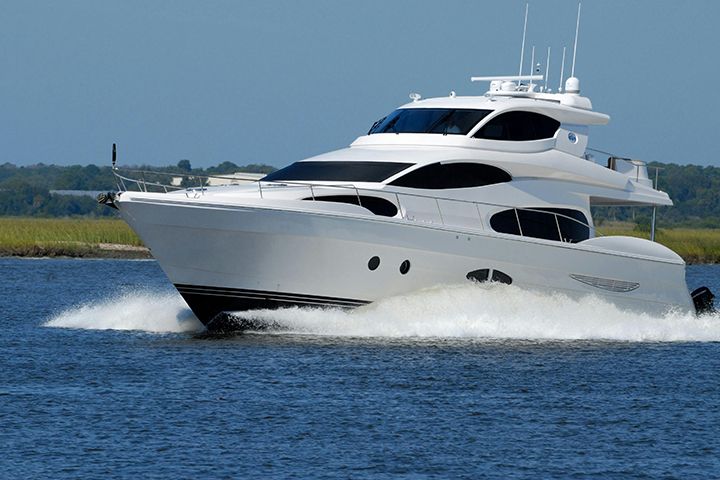Embarking on the boating lifestyle is a dream many aspire to, offering freedom, adventure, and the serenity of being on the water. Yet, the cost of a boat is a significant consideration that can impact this decision. Understanding how much a boat costs is crucial for acquiring it and for budgeting for the full spectrum of ownership expenses. In a world where the boating lifestyle beckons, grasping the financial entailments involved, from identifying the cheapest boat options to planning for the comprehensive cost of boat ownership, is essential. This knowledge ensures that enthusiasts can thoroughly enjoy the pleasures of boating without being anchored by financial surprises.
This article sheds light on the critical aspects of budgeting for a boat, beginning with estimating initial costs, which encompasses everything from purchasing the most affordable boat to considering the add-ons that make boating a joy. It then sails into the ongoing costs of maintaining a vessel, highlighting how the cost of owning a boat extends far beyond the initial purchase. Planning for fees and expenses further prepares potential owners for the realities of boat ownership costs, ensuring they know how to afford a boat while maintaining their lifestyle. Finally, the piece offers practical budgeting tools and resources, providing a navigation chart for financial planning in pursuing your boating dreams. Through exploring these elements, the article aims to guide readers through the financial currents, ensuring they are well-informed about the cost of a boat.
ESTIMATING INITIAL COSTS
Boat Purchase Price
When estimating the initial costs of boat ownership, the purchase price is a primary factor. Prices vary significantly depending on the size, type, age, and condition. For instance, a new boat can range from as low as $500 to upwards of $500 million, while used boats generally offer considerable savings. Specific types like Jon Boats may cost between $1,000 to $5,000, whereas midsize fishing boats could range from $50,000 to $100,000.
Taxes and Registration Fees
In addition to the purchase price, potential boat owners must account for taxes and registration fees. In Florida, boats are subject to sales and use tax plus any applicable discretionary sales surtax unless exempt. The maximum tax on the sale of a boat or vessel is $18,000. Registration and title costs vary by state and may range from $20 to over $200, depending on the type, size, and purpose.
Insurance Coverage
Insurance is another critical aspect of the initial costs. The cost of boat insurance generally ranges from $277 to $753 per year, influenced by factors such as the type, location, and owner's profile. Most states, banks, and marinas require at least liability insurance, with some recommending policies covering up to $100,000 or more. Insuring a boat protects against potential risks and damages, making it an essential consideration for all boat owners.
UNDERSTANDING ONGOING MAINTENANCE
Regular Maintenance and Repairs
Ongoing maintenance is crucial for ensuring the longevity and performance of a boat. Owners should expect to spend between 5-15% of the boat's original purchase price annually on routine maintenance and repairs. This includes regular engine checks, hull cleaning, and replacing worn-out parts. For instance, routine engine servicing, like oil changes and replacing filters, can cost between $600 and $4,000 annually.
Annual Haul-Out and Storage
During the off-season, especially in colder climates, boats often require storage and winterization to protect against the elements. The cost of haul-out services is about $800, and similar expenses are expected for launching post-maintenance. Storage options vary widely in cost, with dry stack storage averaging $10-$30 per foot per month, and marina slips ranging from $5-$30+ per foot per month. Winterizing, which includes procedures like shrink-wrapping, can add $650-$1,600 to annual expenses.
Fuel Costs
Fuel expenses form a significant part of ongoing boat maintenance, particularly for powerboats. The cost depends on several factors including boat size, engine type, and usage frequency. For high-performance vessels, fuel costs can be substantial, reflecting the need for high-octane gasoline, which might be slightly more expensive than regular fuel. On average, a 250-horsepower powerboat might use about 100 gallons of marine gas per outing, translating to approximately $325 per trip at current fuel prices.
Planning for Common Fees and Expenses
Marina and mooring fees vary widely based on location, boat size, and the amenities provided. Marinas in urban or high-demand areas generally charge more than those in remote locations. Fees for wet storage include additional services like electricity and water hookups, while dry storage costs are often based on the boat's length and the type of storage, such as rack or trailer storage.
Insurance premiums depend on several factors including the type, size, usage, and the owner's boating experience. On average, insurance costs can be around 1.5% of the boat’s insured value annually. However, rates may increase if the boat is used for commercial purposes or if it's a larger, more valuable vessel.
Licensing and registration fees are mandatory and vary by state. These fees are based on the boat’s length and type. For example, larger boats generally incur higher registration fees. In some states, the registration fee can be as low as $25, while in others, it can exceed $200. Additionally, some states require boats to be registered with the Department of Motor Vehicles, and proof of ownership must be provided along with applicable fees.
BUDGETING TOOLS AND RESOURCES
Creating a Boat Budget
Boat owners often start by jotting down a list of necessary items and expenses, then prioritize these by importance and cost. For instance, essential maintenance may take precedence over upgrading electronics if the latter are still functional. A practical approach involves setting a winter budget based on the boat's value, typically around 10% of a new boat's cost, which includes slip, dockage, fuel, and maintenance expenses.
Tracking Expenses with Budgeting Software
To manage boat expenses effectively, many owners utilize budgeting software. For example, the YouNeedABudget app integrates bank and credit card information, updating automatically to provide real-time financial insights. This tool simplifies tracking and categorizing expenses, from routine maintenance to unforeseen repairs, helping owners stay within their financial limits.
Tips for Staying on Track with Your Budget
Maintaining a budget requires continuous monitoring and adjustments. Owners can save significantly by performing routine maintenance themselves, provided it does not void warranties. Additionally, considering fuel costs, opting for ethanol-free marina gas might be more expensive but can prevent costly repairs later. Prioritizing expenses and being prepared for unexpected costs are essential strategies for effective budget management as well.
CONCLUSION
Navigating the financial aspects of boat ownership is a voyage that requires careful planning and a thorough understanding of both initial and ongoing expenses. From the initial investment in purchasing a boat and covering the necessary taxes and insurance to the repeating costs of maintenance, fuel, and storage, we have explored the various facets that collectively define the budgeting landscape for aspiring boat owners. This comprehensive exploration illuminates the path to financially savvy boat ownership and emphasizes the importance of leveraging budgeting tools and strategic planning to ensure that the joys of boating are enjoyed without undue financial strain.
The journey through the costs associated with boat ownership underscores the pivotal role of informed budgeting and the vigilance needed to navigate the financial currents of this rewarding lifestyle. By emphasizing practical budgeting techniques and the thoughtful prioritization of expenses, the article offers a charted course toward achieving boating dreams without the anchor of financial surprises. It's a reminder that with the right preparation and resources, the waters of boat ownership can be sailed smoothly, allowing owners to fully embrace the freedom and adventure that come with this unique way of life.
FREQUENTLY ASKED QUESTIONS
1. What financial considerations should I keep in mind when planning to purchase a boat?
Purchasing a boat is a significant investment. For a new vessel in the mid-to-lower range, prices typically range from $15,000 to $75,000. However, for more luxurious, newer models, the cost can exceed $100,000. Remember, the initial purchase is just one part of the total cost of boat ownership.
2. How much does it typically cost to maintain a boat annually?
Boat maintenance costs may vary, but a commonly accepted guideline is that annual maintenance usually amounts to about 10% of the boat’s purchase price. However, it's advisable to consult the manufacturer for specific maintenance recommendations.
3. What are the additional costs associated with owning a boat?
Beyond the purchase price, boat owners should budget for maintenance, repairs, fuel, and operation costs. Other significant expenses include storage, a trailer for transportation, safety equipment, and any extra gear like water sports equipment.
4. Can you explain the 10% rule in the context of yacht maintenance?
The 10% rule suggests that the annual cost to maintain a yacht is roughly 10% of its purchase price. This rule is applicable to used boats and recognized among boat owners. Additionally, another guideline suggests that maintenance costs might be about 2% of the original purchase price for new boats.
References















